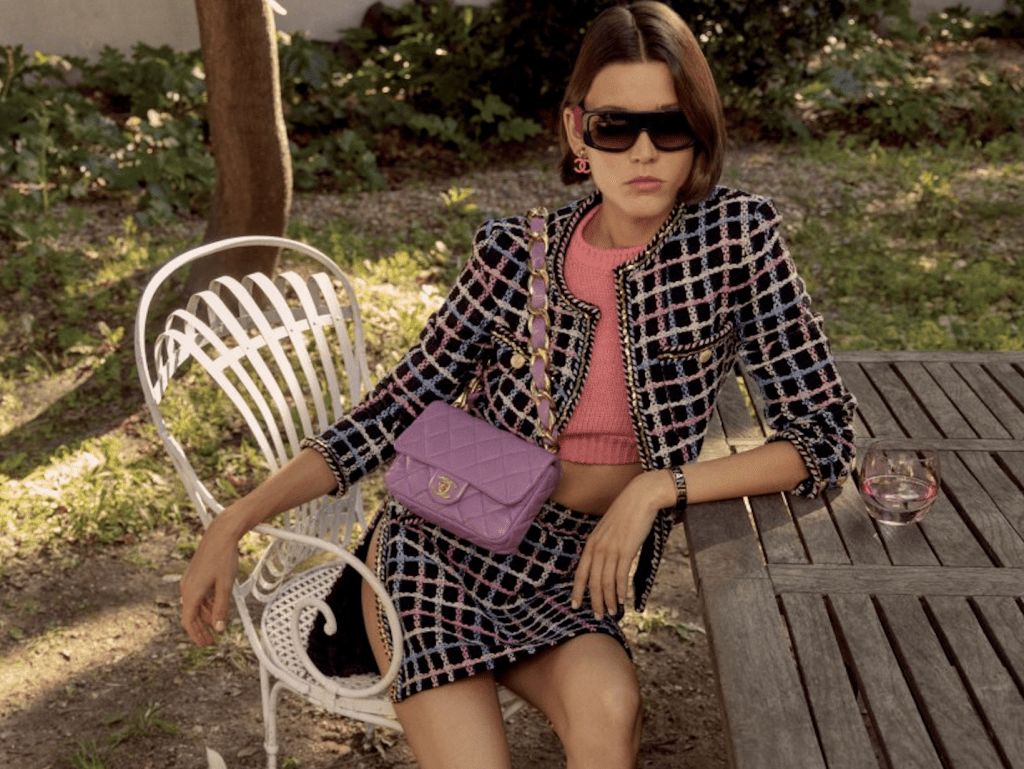Chanel said this week that on the heels of starting to “screen for customers it believed might be stocking up [on its handbags] purely to flip to others in the resale market,” it has barred “nearly one third” of would-be customers in order to stop what Reuters characterizes as “bulk” buyers in South Korea looking to get their hands on pricey Chanel bags so that they can turn around and offer up by way of the resale with markups of 20 percent or more. A spokesman for the luxury goods brand said that it was “able to identify [bulk buyers] after having analyzed their buying patterns,” noting that “since this policy was implemented, the traffic in our boutiques has decreased by 30 percent.”
The news comes after Chanel made headlines back in October for reportedly implementing an anti-resale policy for bags in Korea in which “each customer can buy one Timeless Classic flap bag and one Coco Handle bag per year,” and has also put quotas in place for on small leather goods, including wallets and pouches, assuming that “a customer wants more than one of the same model in the category.” The company’s President of Fashion Bruno Pavlovsky said in the wake of such reports that the brand had “not put new limitations on selling in any country.” Instead, Mr. Pavlovsky asserted, “We just had a big successful year, especially in Korea, and we don’t have enough products – especially for handbags.” That successful year – or better yet, two years – and the resulting “shortages” come as Chanel has doubled-down in its “loyal customers,” and has “enjoyed double digit growth in each country with local customers, even if tourism is up and down” as a result.
As TFL reported this fall, Chanel is not the only brand that has placed limitations on the sale of certain products, Chanel is joined by Hermès, which has notoriously limited the quantities that consumers can purchase of certain “quota” bags, namely, Birkin and Kelly bags, to two bags per a calendar year in furtherance of a “very limited distribution strategy.” At the same time, the Korea Times reported in September that Rolex has similarly been “restricting per-capita purchases,” in the Korean market, at least, in light of raging demand and limited supply. Dating back further, Louis Vuitton has been known to limit consumers’ abilities to purchase more than two of each handbag style per calendar year in an attempt to put a halt to “professional buyers” who were purchasing and then reselling luxury goods “through small shops throughout Asia, or through online retailers like eBay,” the New York Times reported back in 2008.
The impetus for Chanel in connection with its efforts to address the influx of bulk buyers is likely two-fold, with the brand aiming to avoid resulting product shortages that stand to potentially alienate individual consumers who seek out the brand’s offerings for personal use. One need not look further than purse forums to find frustrated clients complaining about resale-motivated shoppers cleaning new products out of Chanel boutiques, thereby, forcing shoppers to pay secondary market prices for these in demand” goods.
Beyond that, Chanel is almost certainly working overtime to ensure that its hard-earned luxury positioning remains intact and not at the mercy of the burgeoning resale market, where it has no control over the products being offered up, the condition of those goods, and the manner in which they are marketed and sold. The brand has reportedly doubled-down on that effort by replacing the authenticity card-and-serial number combination that was traditionally used to authenticate its bags with microchips that can only be verified/authenticated using Chanel technology. (This falls neatly in line with the assertion that Chanel made in the lawsuit that it filed against The RealReal that the “only way for consumers to ensure that they are in fact receiving genuine CHANEL products is to purchase such goods from Chanel or from an authorized retailer of Chanel.”)
Hermès has taken things a step further, adding language to its sales receipts in an apparent attempt to block buyers from reselling their bags (and other purchases) in certain capacities. The Paris-based luxury goods brand began adding language to its receipts in or around July 2020 that states that as a term of sale, “The customer represents and warrants that they are purchasing Hermès product in our boutiques for their personal use. Therefore, you agree you will not, directly or indirectly, resell Hermès products purchased in our boutiques for commercial purposes.” Hermès and other ultra-luxury brands like Rolex similarly maintain language to this effect in the terms on their websites.
Product quotas and the addition of elements, such as specific commercial resale-prohibiting language on purchase receipts, is an indication of how some brands are dealing with the resale market. Chances are and assuming that luxury resale – which was worth upwards of $37 million in 2021, according to Bain & Co. – continues to grow (and it is expected to), brands that are the most hesitant to embrace resale will have to, and will likely aim to own the market for their pre-owned products by bringing resale efforts in house or linking with established resale players in order to be able to enjoy greater control over the market.











